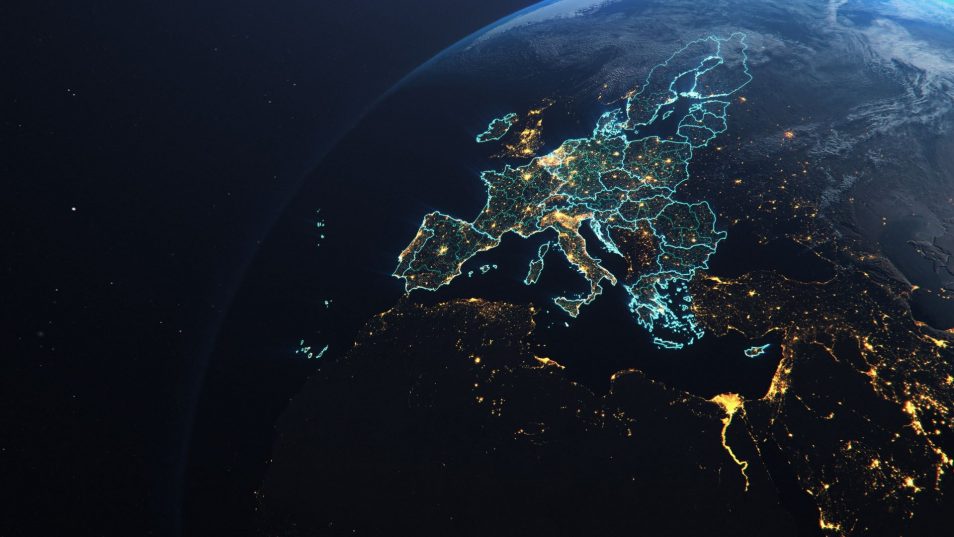New Horizon Europe Project: Preparing Europe for the future
 © Sono Creative - stock.adobe.com
© Sono Creative - stock.adobe.com
From January 1, 2024, InvigoratEU* – a new Horizon Europe project coordinated by the EU-Chair at the University of Duisburg-Essen together with the Institute for European Politics in Berlin – will examine how the EU can structure its future relations with its eastern neighbors and the countries of the Western Balkans.
The consortium will initially receive around three million euros in funding from the EU over the next three years. With Ukraine, the Republic of Moldova and Georgia, the number of official candidate countries for accession to the European Union has grown to ten. This means that EU enlargement is once again a key strategy for contributing to greater stability and prosperity throughout Europe in times of new geopolitical challenges.
How can the EU strengthen its enlargement and neighborhood policy? Can it ensure Europe’s future viability beyond its borders? The InvigoratEU project, coordinated by Dr. Michael Kaeding, Professor of European Integration and European Policy at the University of Duisburg-Essen (UDE), aims to answer these questions. The more than 50 researchers from various EU and non-EU countries are pursuing three key objectives:
- New strategies for a strong Europe: In light of a geopolitical turning point, the researchers primarily want to investigate how the enlargement and neighborhood policy needs to be reformed, how to respond to the political, military and economic ambitions of Russia, China, the US and Turkey in the Eastern neighborhood and the Western Balkans, and how the EU’s foreign policy arsenal needs to be rebuilt so as to prepare for the new era of military interventions. New data sets will be created – e.g. a public opinion survey, an external influence index and a social compliance scoreboard.
- Development of a future-oriented vision: New institutional frameworks will be designed – both for politics and for education in schools and universities. To this end, the researchers are developing scenarios, visions and strategies and organizing youth labs, workshops for young professionals and political debates throughout Europe. The aim is for the young Europeans to develop policy recommendations for European and national political actors, which will be presented in Brussels and European capitals at the end of the project.
- Broad communication of the results: A CDE (“Communication, Dissemination and Exploitation”) strategy is central to achieving the project’s objective – the recommendations derived from the research findings need to be communicated, disseminated and utilized.
“The project,” says Kaeding, “has come at the right time. We need good answers on how to integrate the Western Balkans, Ukraine, Moldova and Georgia into the EU in order to prepare Europe for the future”. What makes InvigoratEU special is that it consists of a consortium that takes into account Europe’s diversity and political perspectives. Seven of the 18 members come from Georgia, Moldova, Ukraine and the Western Balkans (North Macedonia, Montenegro, Serbia). They are complemented by a network of civil society actors with nine representatives from all countries of the Western Balkans, Georgia, Moldova and Ukraine.
*InvigoratEU stands for Invigorating Enlargement and Neighbourhood Policy for a Resilient Europe and is a consortium of 18 partners. It is already the third Horizon Project coordinated by the EU Chair at UDE. It joins the ongoing ActEU project, which focuses on regaining societal trust in democracy in the run-up to the 2024 European elections. It also builds on the already completed SEnECA project, which dealt with relations between the EU and countries in Central Asia (Kazakhstan, Kyrgyzstan, Tajikistan, Turkmenistan and Uzbekistan).
Read the original article on the website of University Duisburg-Essen.
Further information:
Prof. Dr. Michael Kaeding, Institute for Political Science, Tel. 0203-379 2022, michael.kaeding@uni-due.de
Editor: Jennifer Meina, Tel. 0203/379-1205, jennifer.meina@uni-due.de
